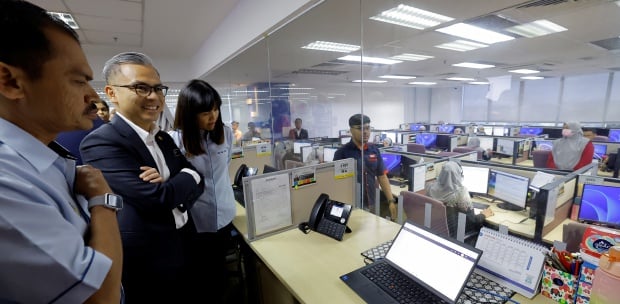I have realised that a fundamental problem that many employees and consequently businesses face, happens when there is a breakdown of internal communication.
Poor communication leads to reduced productivity and morale.
Whenever people get together, misunderstandings are bound to happen. Now, multiply that dynamic by the number of people in your organisation.
This indicates how essential workplace communication is.
Why does this breakdown happen?
Often, communication issues in the workplace occur organically.
The factors that contribute include, when little or no feedback is offered to anyone; if your company sets up ambiguous or vague goals; if your workplace seems to have a collection of unmotivated employees; if there is uncertain leadership; and if you work in a diverse environment.
These features contribute heavily to communication breakdowns.
For management, constat feedback is crucial for an effective and efficient working environment.
Your team members will feel abandoned and undervalued when feedback, which is non-judgmental, is not given regularly.
Naturally, this will lead to demotivation and a drop in efficacy.
Only clear objectives will focus the attention of the people who work for you.
If they are not clear on the goals and don't get feedback, your team will easily get confused, and frustrated.
Assumptions will be made about your staff's understanding.
And, also about management's needs.
This usually leads to unrealistic expectations or inadequate support.
And the most critical outcome of poor communications is unmotivated staff.
From my own experience, if a person does not feel valued or respected at work, they lose interest and just zone out.
This is a recipe for misunderstandings, misalignment of expectations, and just low productivity.
This attitude damages the overall drive of the team.
And, this leads to a lack of transparency, and trust.
Ultimately, if not stopped, it becomes the culture in your organisation.
Effective communication in the workplace helps businesses and organisations in various ways.
When people listen and believe that they are being heard, they feel motivated to connect and engage.
This also helps to build trust and transparency between employees and management, which can lead to improved job satisfaction and higher levels of productivity.
Here are some steps that will help you and your team:
Training
Many communication problems can be solved by setting clear expectations and making the processes smooth and easy to follow. Misunderstandings tend to appear when people are not sure who is responsible for what and have no open channels for asking for clarification or help.
But do not go about it negatively. Most organisations only train when there are problems, and then focus only on a long list of behaviour patterns that they want changed.
Learning must always be built around a positive focus. Make your training specific to your team's needs. The emphasis should be on things like who is responsible for what task. And for organisations that have multiple nationalities, you may also have to add sensitivity or multicultural communication components to your training.
Communication Tools
Leverage on technology. In the modern corporate world, there are specialised communication tools readily available in the marketplace. Find one that suits your needs. Then ensure that everyone gets on board. People will show resistance to change, even when a new tool is clearly better and can help them do their jobs more effectively.
Therefore, your work is not just about buying the tool off the shelf. Management must provide support and learning opportunities, so that your investment in technology pays off. The learning process itself, is a great time for your employees to share and communicate.
Feedback System
Institute a proper feedback system for your team. Employee feedback must be constant and become an integral part of your organisation. This is the only way to ease complications quickly, as soon as they arise. You can choose an anonymous feedback system. Or better still, create an environment where personal conversations are encouraged. But it must be crucial for your employees to feel comfortable enough to be open and honest.
Open Sharing
Organisations must avoid morphing into a situation where their employees end up working in silos. In recent times, because of the hybrid working system that many companies use, this tends to happen more frequently. Updating your communication strategy to ensure the effective distribution of timely news and important updates is vital. To encourage open sharing is significant, and managers play an essential role in setting the tone for this type of information sharing.
Secretive leadership, which some organisations still practice, leads to trust deficiency. Set-up proper communication channels for specific purposes. Organise regular meetings and encourage questions. And, when management is able to answer queries honestly and openly, it fosters trust.
Remember, an effective communication strategy in the workplace is essential to build business success.
*The writer is managing consultant and executive leadership coach at EQTD Consulting. He is also the author ot the national bestseller 'So, You Want To Get Promoted?'






